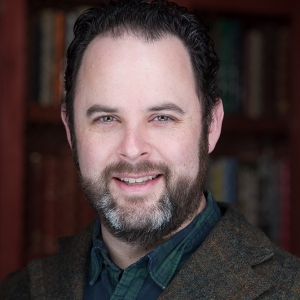When he was developing one of his current courses, “The American Dream on Stage,” Dan Venning, assistant professor of theater and dance, kicked around some ideas that involved the great American playwright Eugene O’Neill.
One hundred years ago, O’Neill won his first Pulitzer for “Beyond the Horizon.” He followed that two years later in 1922 with his second Pulitzer, for “Anna Christie.”
Venning was interested in exploring the ways in which the Pulitzers established O’Neill as the country’s premier dramatist and how his status as a two-time winner “set the tone for the way the prize for drama would be understood throughout much of the next century.”
His project recently got a major boost when the Eugene O’Neill Foundation selected him for its Travis Bogard Artist in Residence Fellowship Program.
Venning will spend three weeks this July at Tao House, the historic site in Danville, Calif., where O’Neill lived from 1937 to 1944, writing some of his best-known plays, including “Long Day’s Journey into Night” and “The Iceman Cometh.”
At Tao House, Venning will have access to its research library and archives, including documents, photographs and other collections related to O’Neill’s life and work.
“Tao House fellowships are given to persons focused on the performing arts for whom a space of time to work without distraction would be beneficial. Fellows benefit from working in the solitude and quiet of Tao House, the same creative atmosphere in which Eugene O’Neill produced his masterpieces,” the foundation states on its website.
Timed to coincide with the centenary of O’Neill’s first Pulitzer prizes, Venning plans to research and write an article about the playwright and the impact of his early work, which produced two of the first four Pulitzers in drama.
“I will interrogate the ways in which these prizes, awarded in such swift succession, established O’Neill as the United States’ premier dramatist,” Venning wrote in his application for the fellowship. “Since then, the prize has come to embody a cultural capital evoking highbrow dramatic culture, American literary drama, and, for much of the first century of its existence, the primacy of the white male playwright.”
Venning’s project also includes creating a future Union course with the working title of “The Pulitzer Prize for Drama and the Last 100 Years of American Theatre.” The course, which will be cross-listed in the departments of Theater and Dance, English, American Studies, and Gender, Sexuality, and Women’s Studies, will, among other objectives, examine how prizes like the Pulitzer “originally reinforced canons that have historically marginalized women, queer artist and nonwhite artists.”
While at Tao House, Venning will also attend and review a number of theatrical productions in the Bay Area.
Venning’s time in California will build upon research he plans to conduct in June as part of an internal Humanities Faculty Research Fellowship he was awarded. He plans to visit The O’Neill Theater Center in Waterford, Conn.; the Louis Sheaffer-O’Neill Collection at Connecticut College; and Provincetown, Mass., where O’Neill wrote his early plays and co-founded and worked with the Provincetown Playhouse.
Venning joined Union in 2017. His work often focuses on Shakespearean plays in performance or American drama and musicals. He is also committed to pursuing teaching and scholarship on historically marginalized artists, including women, nonwhite artists, and LGBTQ+ artists.
However, he welcomes the opportunity to delve deeper into the impact of O’Neill, whom Tony Kushner (“Angels in America”) called the father of the American playwright.
“O’Neill’s historical importance to the development of literary drama in the United States is undeniable, even for those, like myself, who like to challenge the canon whenever we can,” Venning said.

